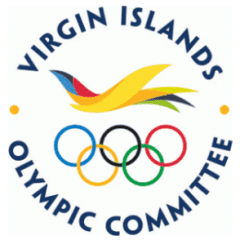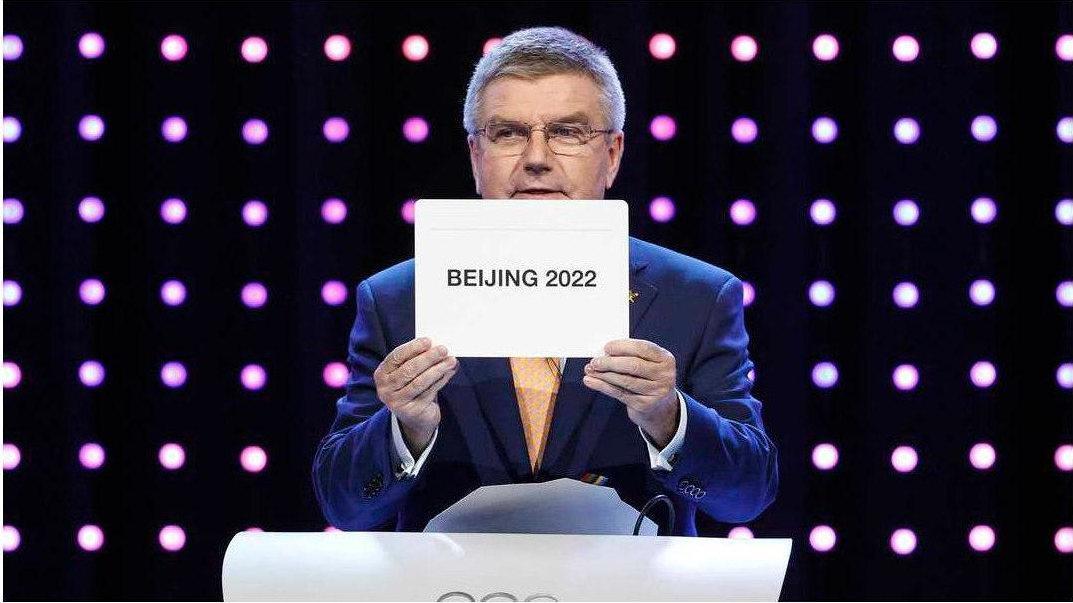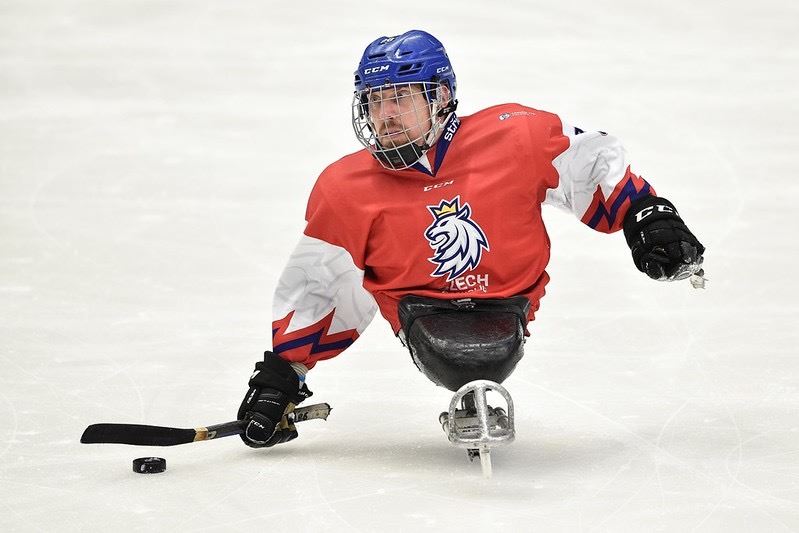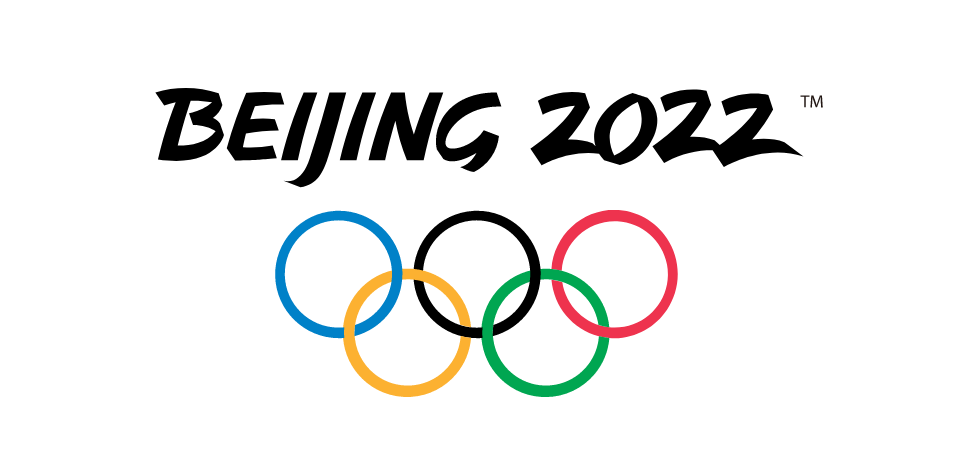Search the Community
Showing results for tags 'Beijing 2022'.
-
As the 2022 Winter Olympic Games in Beijing approach, scrutiny on China as a host is back in focus. Its on-going record of human rights abuses - most recently, between the treatment of its Muslim minority to the subjugation of Hong Kong - is depressing. And, it's a legitimate question on whether such a regime should be showcased as host of a "sportswashing" event like the Olympics. That this conversation is happening shouldn't come as a surprise. It was certainly previewed in the contest to host these Games. As more palatable candidates dropped out of the bidding race, the International Olympic Committee (IOC) was left with two options in 2015: Beijing and Almaty. Despite experiencing similar concerns ahead of its hosting of the 2008 Summer Games, China really was seen as the lesser of two evils...Kazakhstan was and is no humanitarian state, either. July, 2015: Thomas Bach announces Beijing as the host of the 2022 Winter Olympics. So, Beijing it is, unless the IOC inconceivably decides to move the event. So, the calls for an Olympic boycott have happened. Some of it is political grandstanding - in the United States, at least, an easy way to pressure the current administration while preaching righteousness. But athletes are chattering, too, while China remains defiant. For now, the U.S. Olympic Committee has reiterated its stance against a boycott. Which begs the question...do Olympic boycotts even work? Let's look at history. 1956 Melbourne Multiple nations stayed away from Australia's first Summer Games, for a variety of reasons. In response to the Soviet Union's invasion of Hungary just before the start of the Games, Spain, Switzerland, and the Netherlands pulled out. Egypt, Lebanon, and Iraq boycotted as a result of the Suez Crisis with Israel. And, China (the Peoples Republic) officially boycotted since China (Taiwan) was allowed entry. At that time, probably only the Netherlands' absence affected general competition quality. And, decades later, it's viewed by the Dutch as "the black page in the Olympic history for the Netherlands". It's hard to argue that the boycott influenced outside events, as the trajectories of the Cold War, Middle East crisis, and Chinese territorial fights continued well past 1956. 1964 Tokyo Due to political discrimination at the separate Games of New Emerging Forces (GANEFO) in 1963, those participating athletes were barred from the 1964 Games. Thus, Indonesia and North Korea pulled all their athletes from the Olympics. The resulting legacy of the 1964 boycott is simply a missed opportunity to see North Korean Sin Kim-Dan, then the world record-holder, compete in the women's track 800 meters. That had promised to be one of the more intriguing events on the track. As for GANEFO? Built as a direct competition to the Olympics by Indonesia, it was officially dead by 1970. Cartoonist Eric Heath pondered a separatist future of the Games in 1976 1976 Montreal In 1976, New Zealand's rugby team toured South Africa despite an international sporting embargo on the apartheid-led nation. In response to New Zealand not being expelled from the 1976 Games later in the year - and despite rugby not being an Olympic sport - more than 20 African nations led a boycott. By far the most prolific multinational political effort at the Games, the success of the effort is nuanced. Some argue that the massive boycott did help repeal apartheid in the longer end, as it shined a wider light on South Africa's racist policies (and Black African unity against it), as well as spearheading immediate resistance to rugby's friendliness with South Africa within New Zealand itself. On the other hand, by far the lasting commentary of a Montreal 1976 retrospective is the massive debt incurred in staging the Games, not the boycott. And, track fans (again) were deprived of potentially stirring matchups, particularly from East African runners. Note, Taiwan also boycotted these Games, as a result of not being able to use the moniker Republic of China, in IOC deference to the People's Republic of China (who again didn't even enter). 1980 Moscow In by far the biggest Olympic boycott effort, the United States led more than 60 other nations, including Canada, Japan, and West Germany, to skip the Games in order to voice opposition to the recent Soviet invasion of Afghanistan, and to not use Games participation as "implicit approval" of Soviet aggression. With many leading nations absent, and many individual athletes from participating nations similarly staying home, competition was hit hard and the host nation was seemingly chagrined. But not chagrined enough to change its Afghanistan policy: the Soviet Union remained in the country until 1989. In the U.S., the boycott is very much seen as ineffectual, and devastating for the more than 400 American athletes prevented from competition. Even the U.S. Olympic Committee weighed in last year against boycotts after continued remembrance of 1980. 1984 Los Angeles Announcing a distrust of security for its athletes, the Soviet Union led a boycott of the Los Angeles-hosted Games in 1984. rather acknowledged as a tit-for-tat move for 1980, it is also widely seen as having failed. While 13 other Soviet-tied nations also stayed home, the Games most certainly persevered. Buoyed by excited media coverage, Los Angeles 1984 is as well-known for who did compete as much as who didn't. Romania and Yugoslavia bucked the Soviet block and thrived. P.R. China appeared for the first time since 1952. The Games were also a financial hit, providing a funding model that is today's top sports sponsorship property. The Soviets and friends didn't come? The hit to competition didn't seem to matter to the massive audiences in the end, as Los Angeles brought the party back to life. 1988 Seoul Despite not having official diplomatic relationships with the communist bloc at the time, South Korea managed to avoid a significant boycott effort. North Korea, after being denied an unlikely request to co-host in a significant manner, stayed home, along with their ally Cuba. Otherwise, Seoul 1988 set a record for participating nations (159) and, with all sporting world powers (sans Cuban baseball players and boxers) present, full competitive action was restored One take on whether this boycott was a success is looking at when South Korea again hosted a Games with Pyeongchang 2018. Then, in order to ensure North Korean participation, a series of "unity" measures were integrated. Some might argue that a line might be drawn back to the lessons of 1988's failed negotiations, but the Olympic concessions proved only a temporary respite, as any goodwill generated in 2018 is certainly forgotten now. Plan on another round of North Korean angst if and when South Korea hosts again. Beijing is hoping it's hard to boycott mascot Bing Dwen Dwen So, where will today's boycott talk go? There are a lot of beginning similarities to the U.S. approach with Moscow 1980. A call to move the Games, then to boycott by determined politicians. A president increasingly scrutinized for how hard-line he is with a geopolitical enemy. A legitimate humanitarian transgression by the host, deserving of significant and perhaps symbolic international reaction. Too often, though, those championing a boycott overlook those directly affected, the athletes. And athletes remain the heart of the Games; despite any fanfare and ceremony, it's about the ultimate camaraderie of competition. If 1980 is a guide, one should expect the significant public relations risk of a litany of athlete disappointment stories. And, times have changed. The Games are bigger, and athletes and sport federations have much more at stake commercially. Although there are a myriad of world championships, world cups, and grand prix events in any given sport, the Olympics remain the ultimate opportunity for an athlete to showcase their hard work and career. What to do? Though some individuals may be at peace with making a personal choice to not compete, it would be a tough call today to to ask an entire delegation to step down. Athletes deserve to be the priority, and not victims of political retributions. Perhaps the focus should be to pressure the IOC to not award the Games to questionable spots in the first place. That certainly may be one purpose behind the IOC's targeting a single "preferred" future host for the next few summer editions. While Beijing 2022 will probably proceed as planned, at least there's a blueprint to better avoid a problem in the future. A version of this opinion originally appeared on gamesandrings.com.
- 3 comments
-

2021 Para Ice Hockey World Championships Postponed to June
Olympian1010 posted an article in Totallympics News
The 2021 World Para Ice Hockey A-Pool Championships, originally scheduled for early May in Ostrava, Czech Republic, have been postponed to 19-26 June due to the COVID-19 pandemic. The extra preparation time will be used to implement comprehensive health and safety protocols throughout the event in compliance with local and national guidelines, according World Para Ice Hockey and the Local Organizing Committee (LOC).World Para Ice Hockey Manager Michelle Laflamme stated, “World Para Ice Hockey is looking forward to bringing the World Championships back to Ostrava, and doing so in accordance with all health and safety procedures to ensure a safe event for all athletes, teams and staff involved. The World Championships will provide an exciting opportunity for people around the world to tune-in and witness the first Para ice hockey international event since the COVID-19 pandemic began.” Ostravar Arena will host the event for the second consecutive time and third time overall after staging the tournament in 2009 and 2019. Head of the Ostrava 2021 LOC, Jiri Sindler, said “The tournament will take place according to strict health and safety measures. We are already receiving great interest from fans in purchasing tickets, and we thank all of our fans for their support, however we will not be launching ticket sales at this time. We are working intensively to ensure that our fans will be able to watch the entire World Championships online.” In Ostrava, eight teams, ranked highest internationally, will compete for the world title and qualification slots for the Beijing 2022 Paralympic Winter Games. The top five teams at the World Championships will automatically qualify for the Beijing 2022 Winter Paralympics. The last three finishers will take part in a qualification tournament to be held at a later date to try to earn their spots in Beijing. The United States of America will enter the tournament as the defending Paralympic and world champions, and will be joined by Paralympic and world silver medallists Canada, Paralympic and world bronze medallists South Korea, host nation Czech Republic, and Norway and Italy. Russia and Slovakia, which finished in the top two spots at last year’s B-Pool World Championships in Berlin, complete the line-up. With more than 300,000 inhabitants, Ostrava is the third largest city in the Czech Republic and the capital of the Moravian-Silesian region. Ostravar Arena, formerly known as the Culture and Sports Palace, was first opened in 1986 and has hosted many national, European and World Championships, as well as concerts and other popular events. The Arena was modernized in 2003 and is home to the HC Vitkovice Steel ice hockey team.-
- Para Ice Hockey
- Beijing 2022
-
(and 1 more)
Tagged with:
-

A Look At The Preliminary Schedule For Beijing 2022
intoronto posted an article in Totallympics News
Longest Winter Games ever! For the first time in the history of the Winter Olympic Games, competition will begin two days before the Opening Ceremony. The 2022 Winter Olympic Games would run a total of 19 days, making them the longest in history of the Winter Olympic Games. The 2022 Winter Olympic Games in Beijing will begin with Mixed Doubles event in Curling, two nights before the opening ceremony is scheduled. The first competition session is currently scheduled to take place at 20:05-22:00 (local time) on February 2nd. The Opening Ceremony of the 2022 Winter Olympic Games is scheduled to take place on February 4th, with the Closing Ceremony scheduled for February 20th. Both are scheduled to be held at the iconic Bird’s Nest Stadium in Beijing. There are currently 109 medal events scheduled to be contested across seven sports and fifteen disciplines. The first medals will be handed out in the women's skiathlon in cross-country skiing on February 5th. Below, you can find a breakdown of the schedule by sport/discipline: Alpine skiing The alpine skiing competition is scheduled to be held over eleven competition days. As is tradition, the men's downhill will be the first event held on February 6th, with the mixed team event closing the event roster on February 19th. Biathlon As with alpine skiing, the biathlon events are planned to be held across eleven days. The games will begin with the mixed relay competition on February 6th, and conclude with the women's mass start on February 19th. Bobsleigh The bobsleigh competition introduces a new event, the women's monobob, which is scheduled to be the first bobsleigh event at Beijing 2022. The first two heats of the competition are scheduled for February 13, with the last two heats scheduled for February 14. Meanwhile, the men's four man competition will be the last bobsleigh event to conclude, with heats three and four scheduled for the final day of competition on February 20th. Cross-country skiing The Beijing 2022 cross-country skiing competition will be held over ten competition days, as in PyeongChang 2018. Just like four years ago, the women's skiathlon will start the competition on February 5th, with women also having the last event with the 30km mass start on the final day of competition, February 20th. Curling Curling has the distinction of being the only sport to be contested over all 19 competition days. Due to the expansion of the mixed doubles competition to ten teams, an additional competition day was necessary, hence day -2, which will have one session. The men's tournament will conclude the competition on the final day, February 20th. Figure skating Eleven competition days make up the figure skating competition. The first round of the team event is scheduled to be held on February 4th, with the men's and women's short program, along with the rhythm dance in the ice dancing. The pairs competition will conclude the games, marking a contrast to the last five editions, which had the ladies event conclude the figure skating competition. This could be due to China having the world's leading pairs figure skating combination in Sui Wenjing / Han Cong, which could allow the figure skating competition to end on a high note. The pairs free skating competition is scheduled for February 19th, with the Exhibition Gala scheduled for a day later. Freestyle skiing The freestyle skiing competition will see the addition of three new events: the men's and women's big air and the mixed team aerials. Due to the increase in events, the competition schedule for the discipline has been expanded by two days, to a total of fourteen. Just like four years ago, the moguls qualification for both genders will kick of the competition on February 3rd, with the men's halfpipe being the final event. As for the new events, the qualification for the big air will be on February 7th, with the women's finals on the 8th and the men's finals on the 9th. The next day will see the finals of the aerials mixed team event. Ice hockey The ice hockey competition is scheduled to be two days longer than it was in 2018. This means the first matches will be held before the opening ceremony, with the first four matches scheduled for February 3rd. The increase in competition days can be attributed to the increase in women's teams from eight to ten. As is tradition, the men's gold medal match will be last medal event on February 20th. Luge The luge competition has the same competition order as in 2018, with the men going first, followed by the women, then the doubles and finally the mixed team relay. The competition will start on day one, February 5th and finish on day six, February 10th. Nordic Combined The Nordic Combined will have three competition days, with the first day being February 9th with the men's normal hill. The final event will be the men's team large hill on February 17th. Short track speed skating Short track speed skating will move to a six day competition (previously the events were held over five days). This is being done because of an additional event (the mixed relay) being added to the competition program. Short track competitions will begin on day 1 (February 5th), with the first medals being awarded in the aforementioned mixed relay. The competition will wrap up on February 16th with the women's 1500 meters and men's 5,000 meters relay. Skeleton Just like in PyeongChang, the skeleton competition will be held over three days. The men will start it off on February 10th, with the women's competition concluding on the 12th. Ski jumping Ski jumping is one of four disciplines with new events at Beijing 2022, with the addition of the mixed team event. The competition begins on February 5th with the men's normal qualification and the women's normal hill final. The men's team large hill concludes the competition on February 14th. The new mixed team event is scheduled for February 7th. Snowboarding The snowboarding competition also sees a new event added, with the mixed team snowboard cross the new event added. However, even with an additional medal event, the competition will only be held over ten days (versus the eleven in PyeongChang 2018). The snowboarding competition starts on February 5th with the women's slopestyle qualification and concludes with the men's and women's big air events on February 15th. The new mixed team snowboard cross is scheduled for February 12th. Speed skating Just like in 2018, the speed skating competition will be held over 11 days. The women's 3000 meters will be the first event on February 5th, and the mass starts will conclude the competition on February 19th. Note: The schedule is subject to change.- 7 comments
-
- Alpine Skiing
- Biathlon
- (and 14 more)
-
Who's Online 32 Members, 0 Anonymous, 312 Guests (See full list)
- Vladimir
- Siddhartha Talukdar
- Esterr24
- suchyy7
- MatiReimundo
- EselTheDonkey
- LowerSaxony
- dantm
- pedja789
- Jan Linha
- ChandlerMne
- dullard
- Epic Failure
- Joseph Hudson 35
- Josh
- Arnoud Beldman
- Oldira
- hckošice
- dodge
- thepharoah
- DJ Crimson Oracle
- mrv86
- rafalgorka
- Sindo
- Rafoo
- skurkiewicz
- Adriano
- Gianlu33
- Laraja
- Mecki83
- Matej
- Belle






